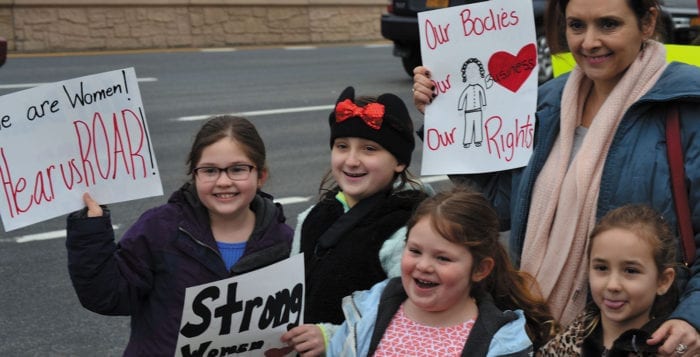Spider-Man’s Uncle Ben once said, “With great power comes great responsibility.”
Over the course of the last several months, we’ve seen the dominance of men in power being stripped down. The day-to-day climate regarding sexual harassment and misconduct have surely changed, but we need to keep this #MeToo dialogue open.
TBR News Media hosted female local government officials, lawyers and activists at our Setauket office to speak about their feelings regarding the behavior of men, and we thank them for their openness and raw stories, sometimes relating to men of high status.
While high-profile allegations and apologies mount, it’s not the actors, politicians and TV stars with whom we should be most concerned. It’s the people around us. We’ve found most often that it’s just when we share our stories, big or small, that we’re really getting somewhere. Getting people together — especially women in power — we can come up with strategies to enact change. We hope that what’s lasting from this remarkable moment in history is not just the list of famous men left in the rubble, but rather the idea that leveraging power to diminish someone else’s self-worth is a thing of the past.
Hearing the wide array of stories from women who have been elected to lead communities, from being grabbed during a middle-school class to being asked inappropriate questions by a boss, the truth is that these things can happen to anyone. And it’s clearly time for a cultural overhaul.
We hope that a byproduct of this moment is also prevention, which can come in the form of education to ensure our boys don’t grow up to become the sexual abusers of tomorrow. To guarantee that this happens, we would like to see school districts and colleges create stricter rules and hold kids accountable for their actions, whether they’re the star lacrosse player heading to the championship or the valedictorian of their class.
In the process of this shift, we don’t want to run out of steam. An issue so long ingrained in society needs a multipronged approach. With that, women shouldn’t fear sticking up for themselves — think about it not as your job being on the line but your principles on the verge of breaking. While the bad behavior of powerful men is what has created this movement, raising confident girls and creating an environment for them to flourish into strong women is another antidote.
Women are, at last, being heard. But we want to make sure that every woman is heard. The focus should be on the prey and not the predator. Just because your abuser wasn’t famous doesn’t mean your story doesn’t need to be heard. To keep steering the #MeToo ship in the right direction, we will continue to run stories on the development of the issue. If anyone, male or female, would like to share a story, anonymous or not, call 631-751-7744 or email [email protected]. The only way to get to a better tomorrow is to share the stories of yesterday and today, to heal, to learn from our actions and to create stronger reactions in the hopes of continuing to rip down the abuse of power that has landed us in this mess.





